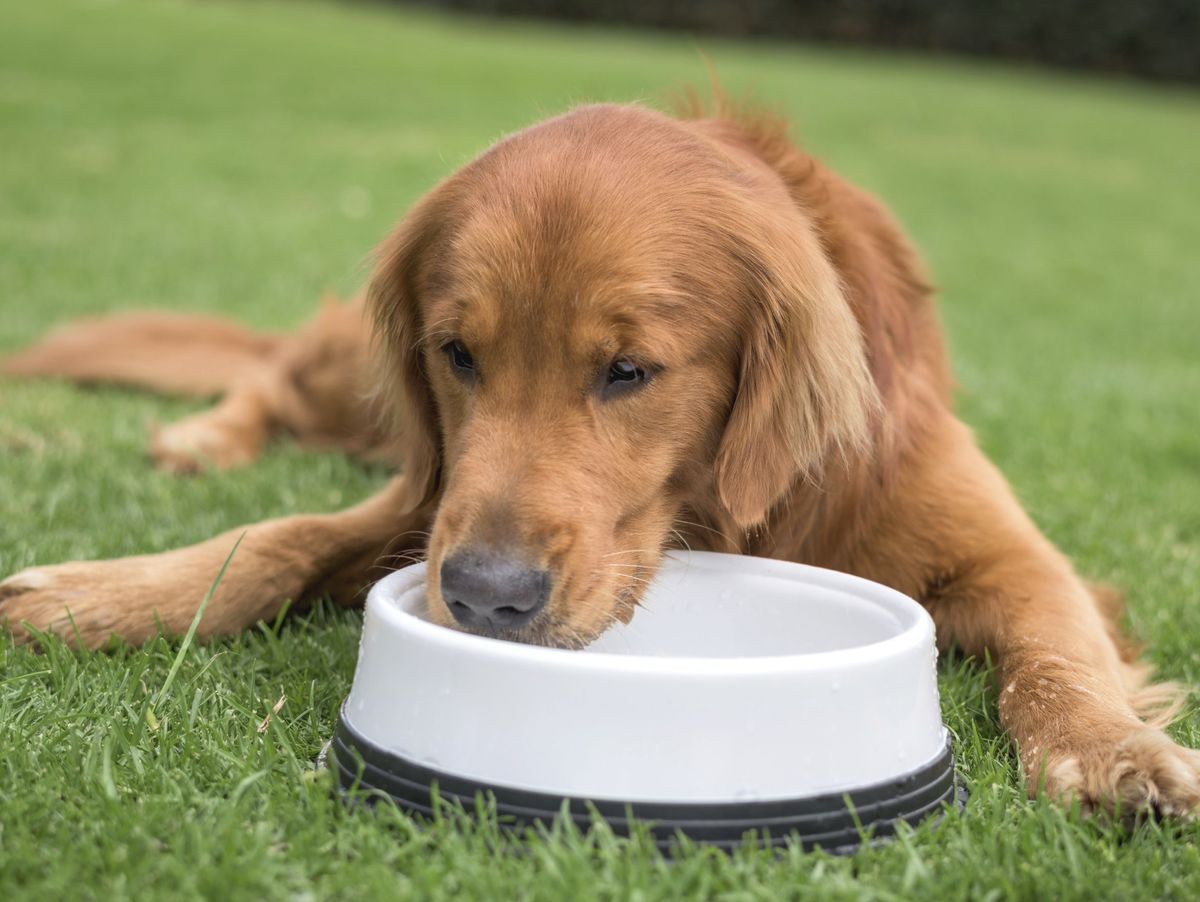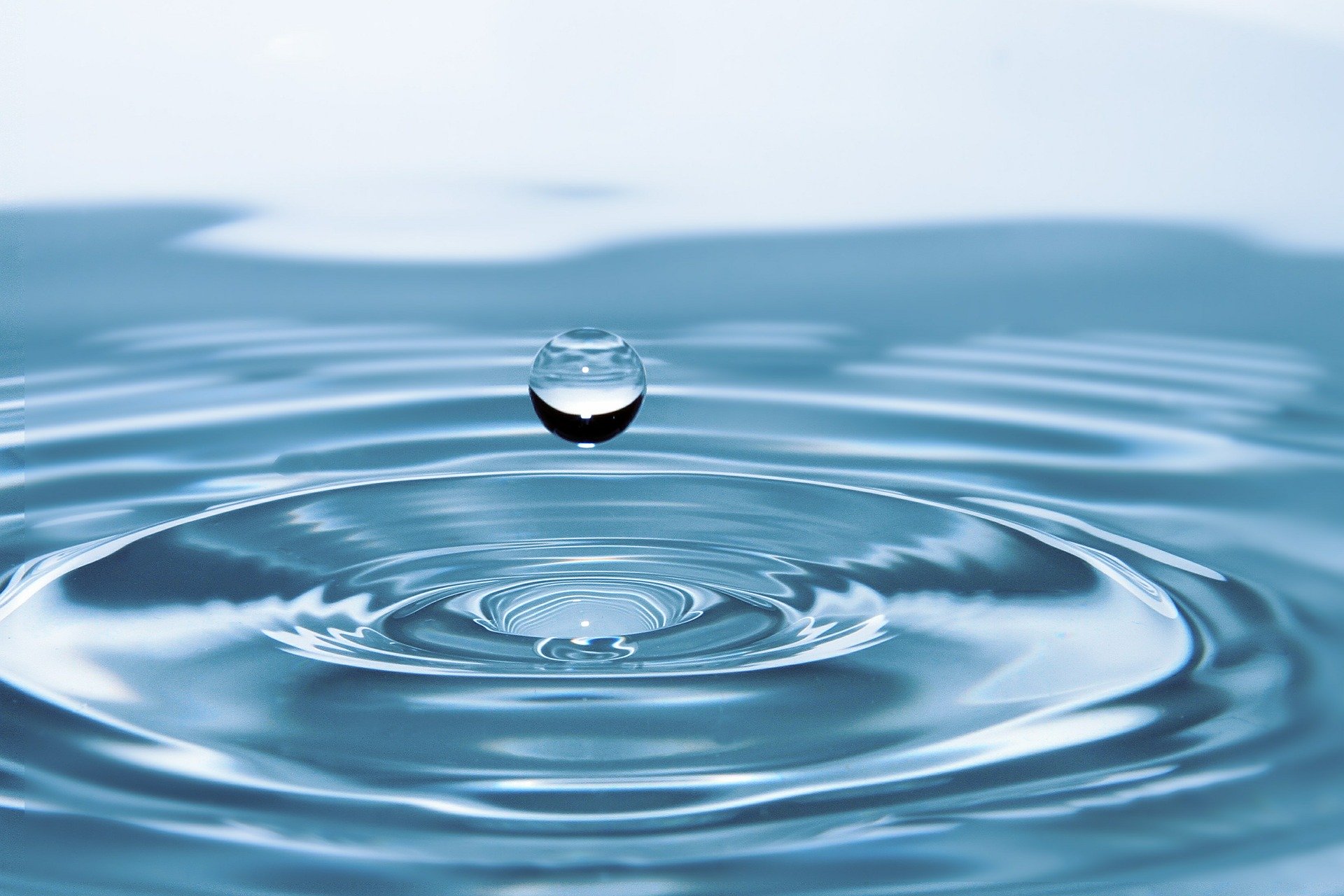Polydipsia dog
Excessive thirst in dogs is never a good sign, and it is important to monitor your dog's water intake to be able to detect any changes early and prevent health problems.
More often than not, when a dog's excessive thirst is due to a health problem, other symptoms appear that allow the owner to suspect a particular problem. To understand what your dog's excessive thirst may be related to, here's some information on the common conditions associated with this strange symptom.
Polydipsia, excessive thirst in dogs
First of all, let's start with an overview of the excessive thirst in dogs, which has the sweet scientific name of polydipsia. Normally, a dog consumes between 50 and 70 ml of water per day, i.e. about 0.5 to 0.7 liters per day for a small dog weighing 10 kg, 1 to 1.4 liters for a dog weighing 20 kg, 2 to 2.8 liters for a dog weighing 40 kg, etc.
Polydipsia occurs when the dog consumes more than 100ml per kilo of body weight daily, and this increase is significant compared to its previous habits and remains constant. In addition, polydipsia is almost always accompanied by increased urine output (polyuria), which is called polyuro-polydipsia.
An essential element to keep in mind is that polydipsia is relative, i.e. it must be put in perspective with different elements to determine its potentially pathological character. For example, it is normal for a dog to drink a lot in a heat wave, or even moderate heat if it is sudden or your dog is sensitive to it.
A change in diet is also often the cause of polydipsia, especially when the dog switches from wet food (pâté) to dry food (kibble).

Causes of excessive thirst in dogs
There are a number of medical and non-medical conditions that can cause a dog to suddenly drink large amounts of water. There are 3 main causes of excessive thirst in dogs: disease, behavioral problems and medical treatment.
Diseases that cause excessive thirst in dogs
One of the common dog ailments that owners fear most when their dog suddenly starts drinking more than he should is diabetes mellitus, a disease that currently has no cure. Diabetes can have many causes (heredity, trauma, poor lifestyle, etc.) and consists of a degeneration of the pancreas, a vital organ that secretes insulin, a hormone that regulates blood sugar levels in dogs. In case of diabetes mellitus, the dog can no longer regulate the sugar level in his body and will therefore start drinking more by reflex to try to eliminate glucose through his urine.
Diabetes cannot be cured because the pancreas cannot be repaired, but treatments to inject insulin into the dog to overcome the deficiencies of this organ can allow him to live normally for many years. Diabetes insipidus is a "false" diabetes in that it does not involve insulin or the pancreas, but is named after the disease because it has the same symptoms. Diabetes insipidus is a hormonal disorder, in which the hormone regulating the kidney functions is either no longer produced by the nervous system (central diabetes insipidus) or is no longer "interpreted" by the kidneys, which are then no longer regulated (nephrogenic diabetes insipidus).
In both cases, the kidneys filter waste poorly, notably by not reabsorbing the water necessary for the proper functioning of the body, which leads to abundant and very diluted urine, as well as excessive thirst. Diabetes insipidus is rarely treated, and the dog can live a normal life if he has plenty of water available at all times. This last point is crucial, however, because the animal can become dehydrated in just a few hours, risking coma and death. Kidney failure, which can occur as a result of diabetes mellitus, can also cause the dog to drink more, as can liver failure and pancreatitis, all of which affect the dog's vital organs.
A deterioration of these organs (respectively the kidneys, the liver and the pancreas) leads to systemic damage that impairs the overall functioning of the dog's body. Fanconi syndrome, which consists of excessive filtering of the kidneys, eliminating more substances than they should, may also be suspected in cases of polydipsia. Hormonal and endocrine disorders, such as hyperthyroidism, Addison's disease or Cushing's syndrome are also the cause of polydipsia, as hormones are necessary for the regulation of the body's vital functions.
Finally, tumors and traumas located in the nervous system of the dog can also cause thirst disorders, associated with kidney disorders or not.

Medications that cause excessive thirst in dogs
If your dog is on medication, it is possible that it is the cause of unusual thirst. Corticosteroids, diuretics, progestins and aminoglycosides are among the medications that often cause polydipsia, with or without polyuria. Thirst disorders caused by a treatment prescribed by a veterinarian are said to be "iatrogenic" and must be distinguished from the possible after-effects of a heavy treatment leading to renal insufficiency.
Regardless of the disorder for which your dog is being treated and the medications he is taking, it is important to inform your veterinarian if you notice polydipsia in your dog. It's possible that his kidneys are too fragile to withstand the treatment, in which case the veterinarian will suggest an alternative treatment when possible.
Behavioral problems that cause excessive thirst in dogs
Dogs may also suffer from psychological problems that cause them to drink compulsively more than normal. Before considering this possibility, it is imperative to rule out other pathological causes such as diabetes, renal failure or Cushing's syndrome.
Once your veterinarian has ruled out any physiological dysfunction, he or she can potentially determine that your pooch has potomania. Potomania is a behavioral disorder that reflects deep anxiety in dogs and manifests itself in compulsive drinking of water and often any liquid available to the animal.
Logically, potomania is accompanied by secondary polyuria, i.e., due to the polydipsia and not to its origin. Never scold your dog if he drinks too much and never deprive him of water, even in case of unfortunate incidents due to a permanently overfilled bladder.
If your dog has a potency problem, it is necessary to find the source of his stress in order to help him, with the assistance of a canine behaviorist if necessary. Excessive thirst in dogs can have many causes, but whatever the cause, it's crucial to always leave plenty of clean water available for your dog.
Thirsty dogs are not thirsty for nothing, and underlying medical conditions can lead to life-threatening dehydration if the dog cannot drink enough to meet his needs. Even if your veterinarian suspects a psychological disorder such as potomania, you must treat the source of the problem and never attempt to suppress the symptom by reducing your dog's access to water, which could have a dramatic outcome.

